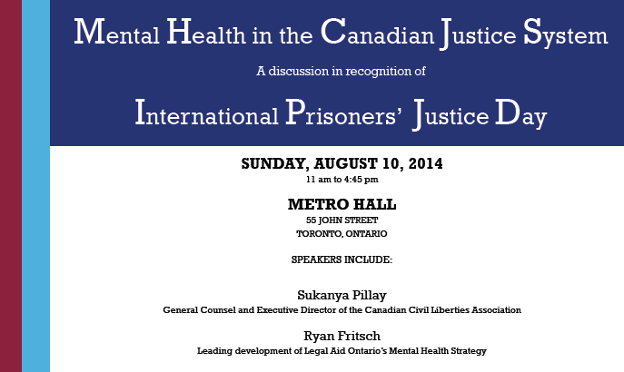by Colleen Sym

“I am not alone.”
This is what participants told us they learned in a series of Town Hall meetings held across Halton Region in the winter of 2011.
One participant in particular, Cathy, found the experience of solidarity compelling. She joined with other participants to form Voices for Change Halton (Voices), a peer-led, anti-poverty and advocacy group sponsored by Halton Community Legal Services (HCLS).
Cathy’s story
This is how Cathy describes the peer-led process:
I have struggled with addiction, on and off, for the last 40 years. I have been in recovery for 5 years. My recovery has been supported by many organizations and people. Voices for Change Halton has been an important piece of my recovery. Voices for Change provided a network of support. Members mentor and support each other in a variety of ways.
When we first started the group, we all shared experiences and issues we had dealt with in the system and the barriers we came across. These stories when shared with others create not only learning but deep friendships. These stories helped us to bond with each other and become a mentoring unit.
All Voices for Change members have had to navigate systems in order to survive. This is a skill that we are able to share with each other so that we improve each other’s lives.
When I started at Voices for Change I was on Ontario Works. Other group members shared information such as how to receive items for special needs. I had health issues that weren’t being supported and I had been denied certain services that other group members were able to obtain. By members sharing how they obtained these services I was able to get new orthotics, a new mattress, dental work and a sleep apnea machine.
A member also shared with me that I was eligible for Employment Start Up. I had asked about this program before but was denied. The Voices for Change member shared that I was indeed eligible and encouraged me to apply again. I did and I was successful.
Not only have I been mentored but I have mentored others to help support them moving forward and having a better life.
Lived experience
HCLS’s sponsorship of Voices has been about many things, but the key principle guiding the collaboration is “Nothing About Us Without Us.”
We borrowed this phrase from the mental health sector, where the value of consumer/survivor-led initiatives is well documented. People who have lived through these experiences can draw on them to impact policy and social change.
In Halton, it is now recognized that people who have lived in poverty have a vital role in:
- continuing to raise awareness and understanding of poverty and poverty reduction efforts in Halton Region;
- monitoring and taking action intended to hold politicians and community leaders accountable, ensuring that promises are kept and new poverty reduction initiatives achieve the intended results; and
- helping to develop and pilot policy options.
An example of this is found in the work that Voices has done with health department at Halton Region. Voices provided essential information relating to the lived-experience of poverty and mental health needs to inform Health Department work with priority populations.
Peer-based assistance
The HCLS partnership with Voices is proving to be a powerful way of increasing the effectiveness and efficiency of our clinic law services. Again, borrowing from best practices in the mental health sector, HCLS started to formalize peer-based assistance services through Voices contributors.
The Halton Legal Health Check-Up (available in English only), another peer-based prevention tool, will similarly improve access to justice in Halton by proactively identifying legal needs and advocacy options.
Our research and experience shows that peers can be a highly effective way of providing legal information. When this is combined with establishing and maintaining peer support networks, legal education can be a powerful participatory strategy that enables people to help themselves and assist others.
Peer support networks can be aimed at the ongoing dissemination of general legal information, provide preventive education, share knowledge, and teach practical self-advocacy skills.
For participants like Cathy, a peer network provides a support system that shows her that she is not alone.
Colleen Sym is the Executive Director of Halton Community Legal Services.





















